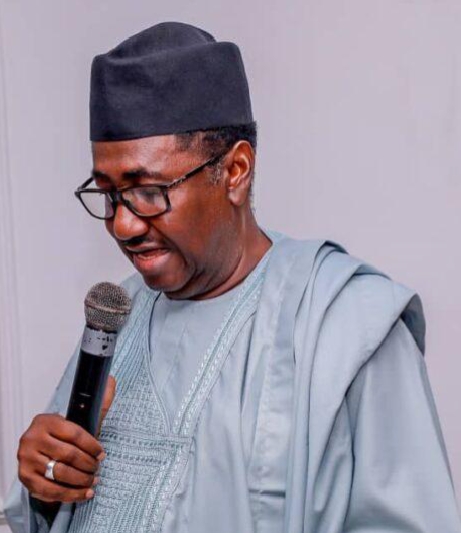Division In Justice: Efcc, Human Rights, And The Perils Of Unchecked Law Enforcement In Nigeria By Divine Jude-Okeke

Division In Justice: Efcc, Human Rights, And The Perils Of Unchecked Law Enforcement In Nigeria
By Divine Jude-Okeke
Nigeria as a nation, grapples with the complex realities of corruption and insecurity, which has now set itself at a precarious crossroads. The Economic and Financial Crimes Commission (EFCC), conceived as a beacon of hope in the fight against corruption, has been thrown into the spotlight for actions that challenge the delicate balance between the enforcement of justice and the preservation of human dignity. Recent events, particularly the tragic midnight raid in Awka, Anambra State, has offered a chilling lens to examine this tension, which now reveals a troubling pattern of human rights violations masquerading as law enforcement.
In the early hours of 17th January 2025, an EFCC operation turned tragic. Under the cover of darkness, operatives stormed a two-story building on Dr. J.O. Ukwutinife Close, targeting individuals suspected of internet fraud. This was no ordinary raid. It culminated in the death of Assistant Superintendent Sahabi Salisu, a man slain in the line of duty, and the arrest of thirty-seven individuals. Yet, the circumstances surrounding the incident unveil a narrative fraught with complexity.

Among the accused was Joshua Chukwubueze Ikechukwu, a computer scientist, whose actions that fateful night were driven by fear, confusion or wilful insistence to resist the law. Observing the approach of unknown individuals via CCTV, and amidst the climate of rampant kidnappings plaguing Nigeria, he fired shots from a firearm legally owned by his father. His claim—that the operatives failed to properly identify themselves—casts a shadow over the operation’s legitimacy.
The EFCC’s decision to conduct a raid at such an hour stands in stark contrast to its own directive from 1st November, 2023, which explicitly banned night-time operations. This disregard for protocol is more than an administrative oversight; it embodied a broader culture of impunity that disregards public trust and endangers lives. Night raids, often carried out under the pretext of urgency, violate the sanctity of private homes and disregard the fundamental rights enshrined in Section 37 of the Nigerian Constitution. This section guarantees the privacy of citizens, a right that should remain inviolable regardless of operational exigencies.
At the heart of this issue lies a profound conflict: the need to combat corruption and cybercrime versus the importance to uphold human rights. The midnight raid in Awka now reveals the dangerous consequences of prioritizing enforcement over ethics. When operatives act without transparency or accountability, they not only jeopardize their safety but also risk downplaying the very fabric of justice they are sworn to protect. The lack of proper identification especially during operations at night-time, builds an environment of fear and mistrust, leaving citizens vulnerable to abuses under the guise of law enforcement.

This pattern of behaviour is not merely a procedural flaw; it is a symptom of a deeper malaise within Nigeria’s law enforcement apparatus. The EFCC, by virtue of its mandate, operates in a space where the line between necessity and overreach is blurred. However, this cannot justify actions that disregard human dignity. Each instance of unchecked authority chips away at the public’s confidence and creates an atmosphere where law enforcement is viewed not as a guardian of justice but as a source of oppression.
The consequences of such practices extend far beyond individual incidents, they contribute to the disregard of public trust. When citizens perceive law enforcement agencies as predatory rather than protective, they are less likely to cooperate, and this hinders efforts to combat the very crimes these agencies are tasked with addressing. However, this mistrust has now created a ripple effect, which has now downplayed on the rule of law and emboldened criminal elements who exploit the resulting fractures in our society.
The Awka incident highlights the broader societal implications of Nigeria’s security challenges. The rise of insecurity—manifested in kidnappings, home invasions, and violent crimes—has created an atmosphere of paranoia. Citizens are now left to fend for themselves in the face of systemic failures, which has inevitably created an increase to self-help measures. This trend not only exaggerates tensions between law enforcement and the public but also threatens to break the social contract that unites democratic governance. The actions of individuals like Ikechukwu, while tragic, are emblematic of a society pushed to its limits, where the line between victim and perpetrator becomes dangerously blurred.
Yet, amidst this grim landscape, there remains hope for reform. The EFCC, and by extension all law enforcement agencies in Nigeria, must undergo a fundamental transformation. This begins with a commitment to transparency and accountability. Law enforcement operations must be conducted in strict adherence to established protocols, with clear emphasis on respecting the rights of citizens. Identification during operations should be non-negotiable, ensuring that officers are recognized as agents of the law rather than faceless intruders.
Training programs that emphasize the ethical dimensions of law enforcement are equally crucial. Officers must be sensitized to the human impact of their actions, understanding that the pursuit of justice cannot come at the expense of humanity. Furthermore, the establishment of independent oversight mechanisms can serve as a critical check against abuses, ensuring that agencies like the EFCC operate within the bounds of their mandate.
Public engagement is another essential component of this reform. The EFCC must actively work to rebuild trust, using platforms to educate citizens about its operations and address their concerns. By fostering an open dialogue, the agency can bridge the gap between enforcement and public perception.
Ultimately, the fight against corruption and cybercrime must be waged with proper understanding of its broader implications. Justice, to be meaningful, must be rooted in morality. It must reflect not only the letter of the law but also the spirit of humanity. The EFCC’s journey toward redemption lies in its ability to embrace this duality, which can then transform them from an agency of fear into a symbol of hope.
The tragedy in Awka serves as a sharp reminder of the stakes involved. It is a call to action, it urges us all, to reflect on the kind of society we wish to build. One where law enforcement is a force for good, upholding the rights and dignity of all citizens. Or one where the pursuit of justice becomes a justification for tyranny. The choice is ours to make, and the time to act is now.
(Divine Jude-Okeke, Esq., writes from Abuja, Nigeria)




